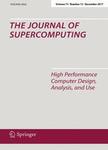版权所有:内蒙古大学图书馆 技术提供:维普资讯• 智图
内蒙古自治区呼和浩特市赛罕区大学西街235号 邮编: 010021

作者机构:Seoul Natl Univ Seoul South Korea
出 版 物:《JOURNAL OF SUPERCOMPUTING》 (超高速计算杂志)
年 卷 期:2021年第77卷第12期
页 面:14583-14599页
核心收录:
学科分类:0808[工学-电气工程] 08[工学] 0812[工学-计算机科学与技术(可授工学、理学学位)]
基 金:National Research Foundation of Korea (NRF) - Korea government (MSIT) [2020R1C1C1010162]
主 题:Natural language understanding Mathematical word problem solving Multi-task learning Template-based method
摘 要:In this study, we propose a novel model called template-based multitask generation (TM-generation) that can improve the problem-solving accuracy of mathematical word problem-solving task. In automatic mathematical word problem-solving task, a machine learning model should deduce an answer to a given problem by acquiring implied numeric information. To build a robust model that can sufficiently utilize numeric information to solve various mathematical word problems, such a model should address two challenges: (1) filling in missing world knowledge required to solve the given mathematical word problem, and (2) understanding the implied relationship between numbers and variables. To address these two challenges, we propose template-based multitask generation (TM-generation). To address challenge (1), we utilize the state-of-the-art language models called ELECTRA. To address challenge (2), we propose an operator identification layer that models the relationship between numbers and variables. Our experimental results show that using the MAWPS and Math23k datasets, state-of-the-art performance was achieved: 85.2% in MAWPS and 85.3% in Math23k.